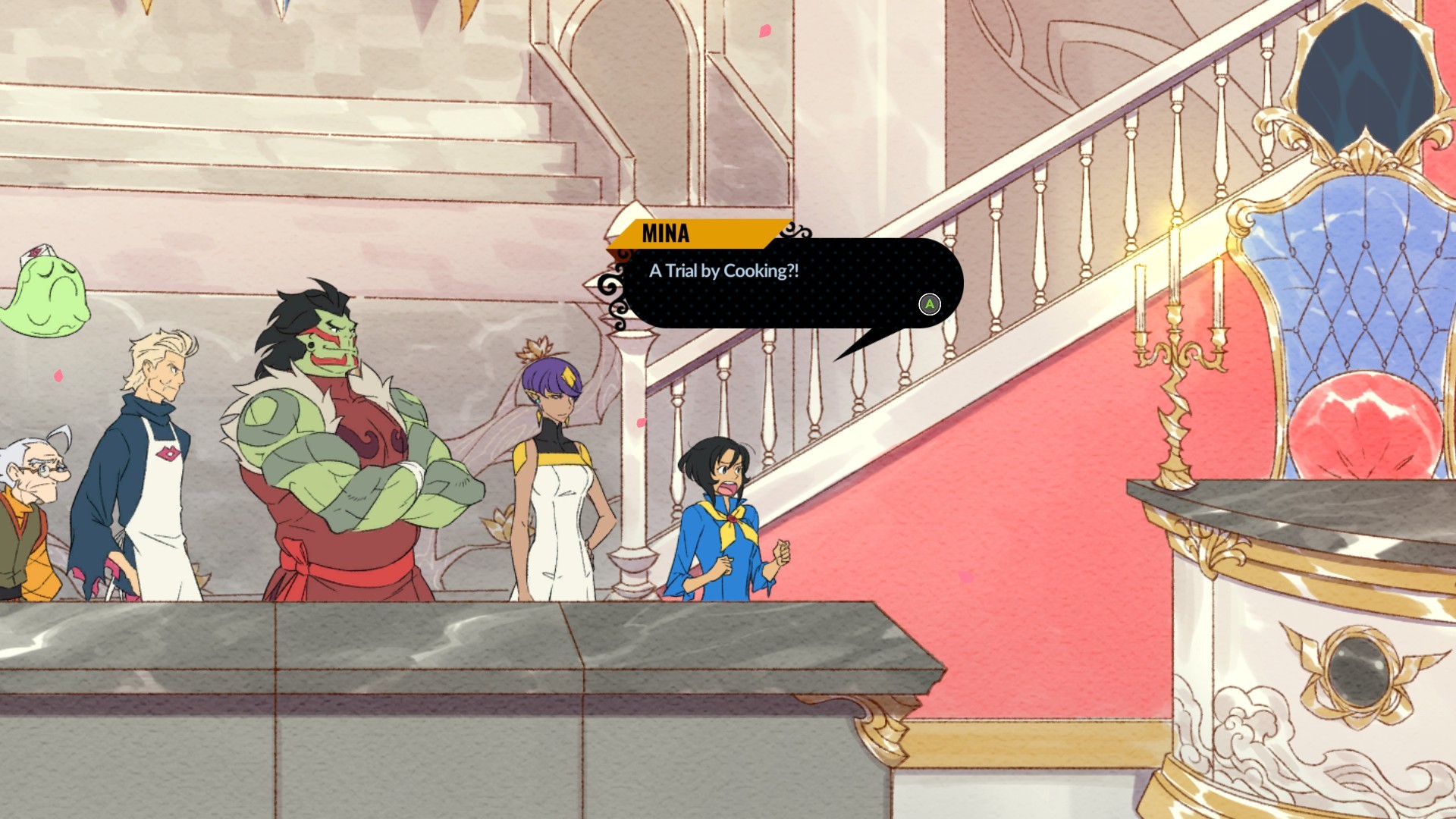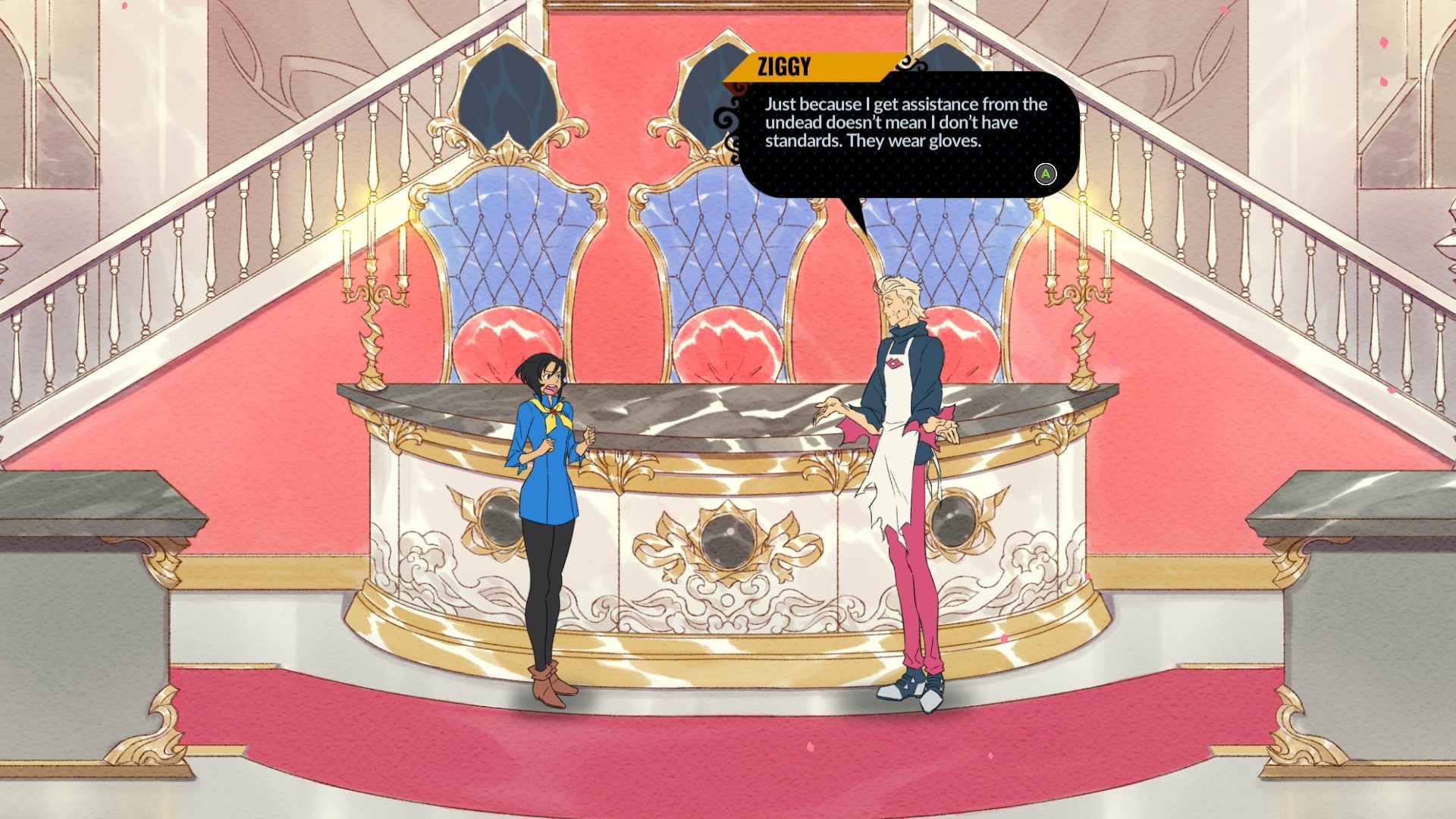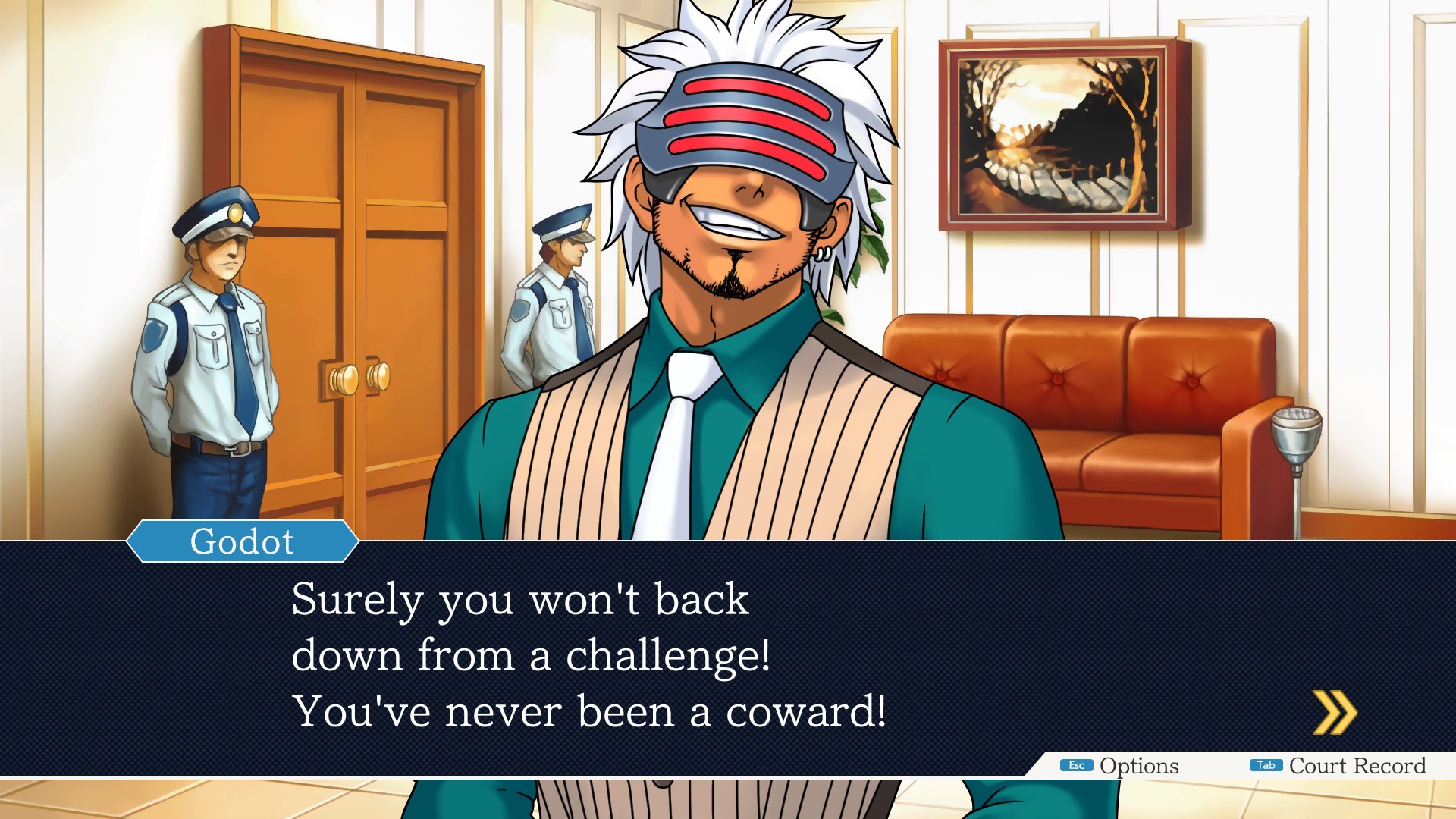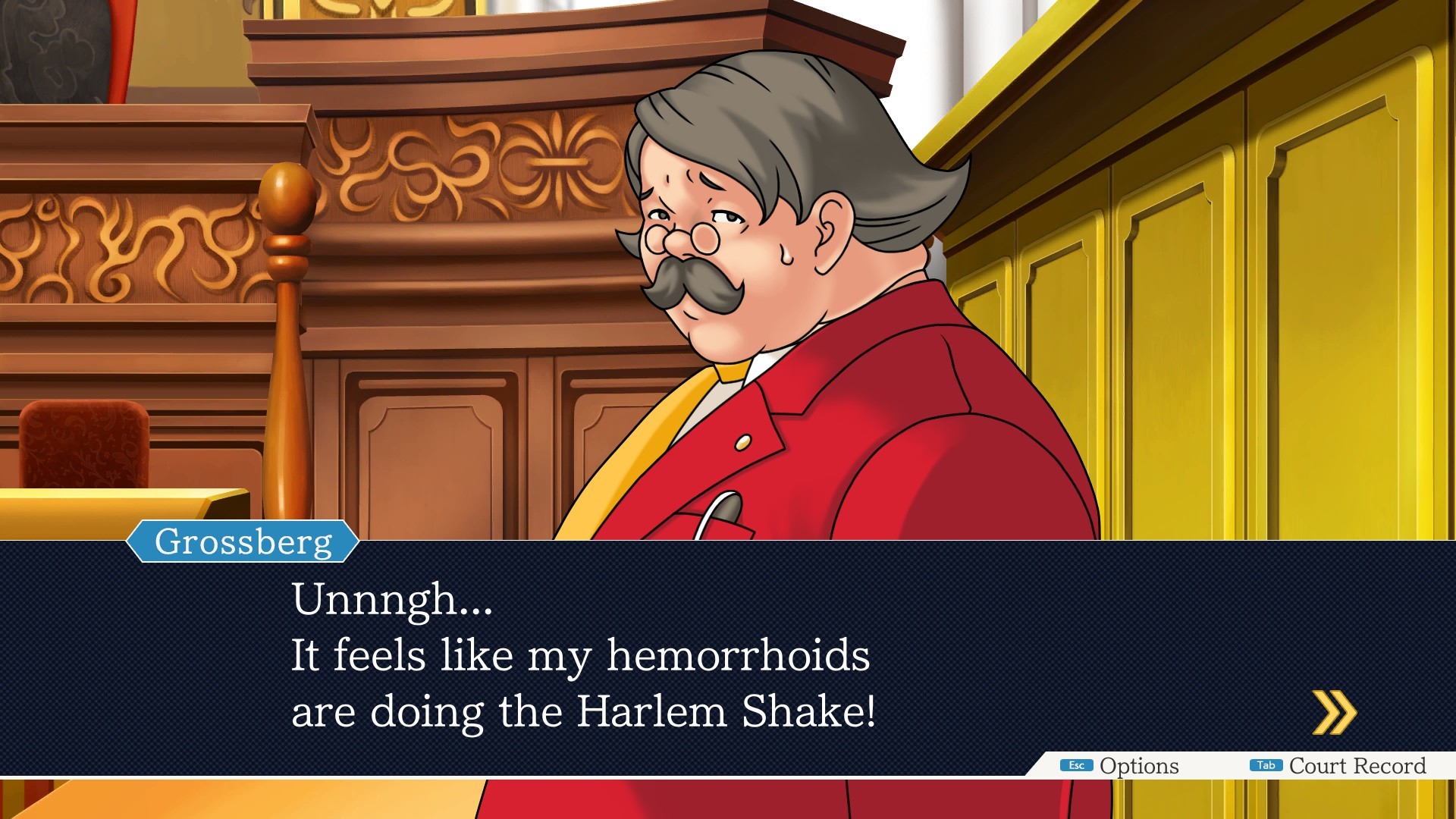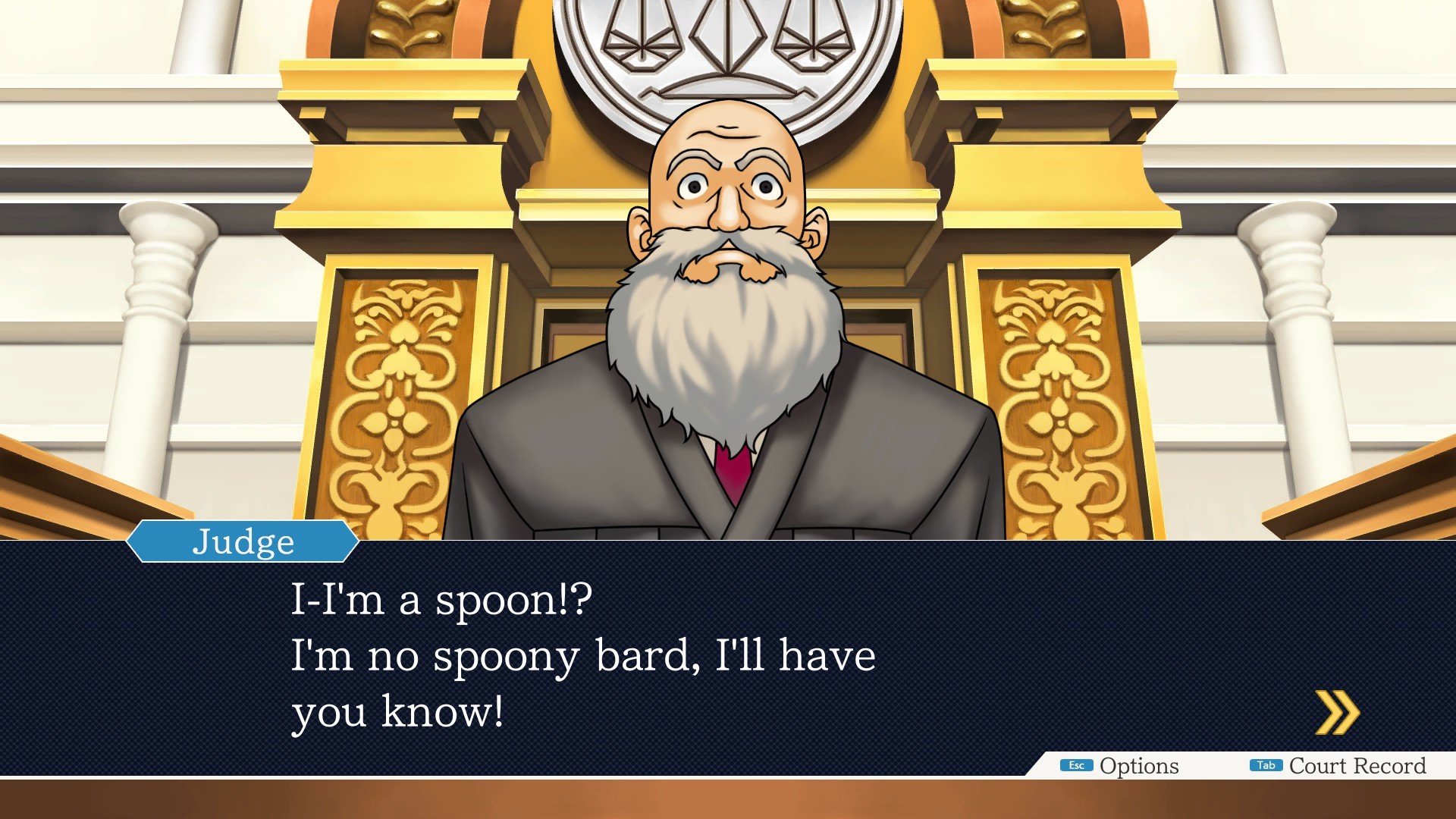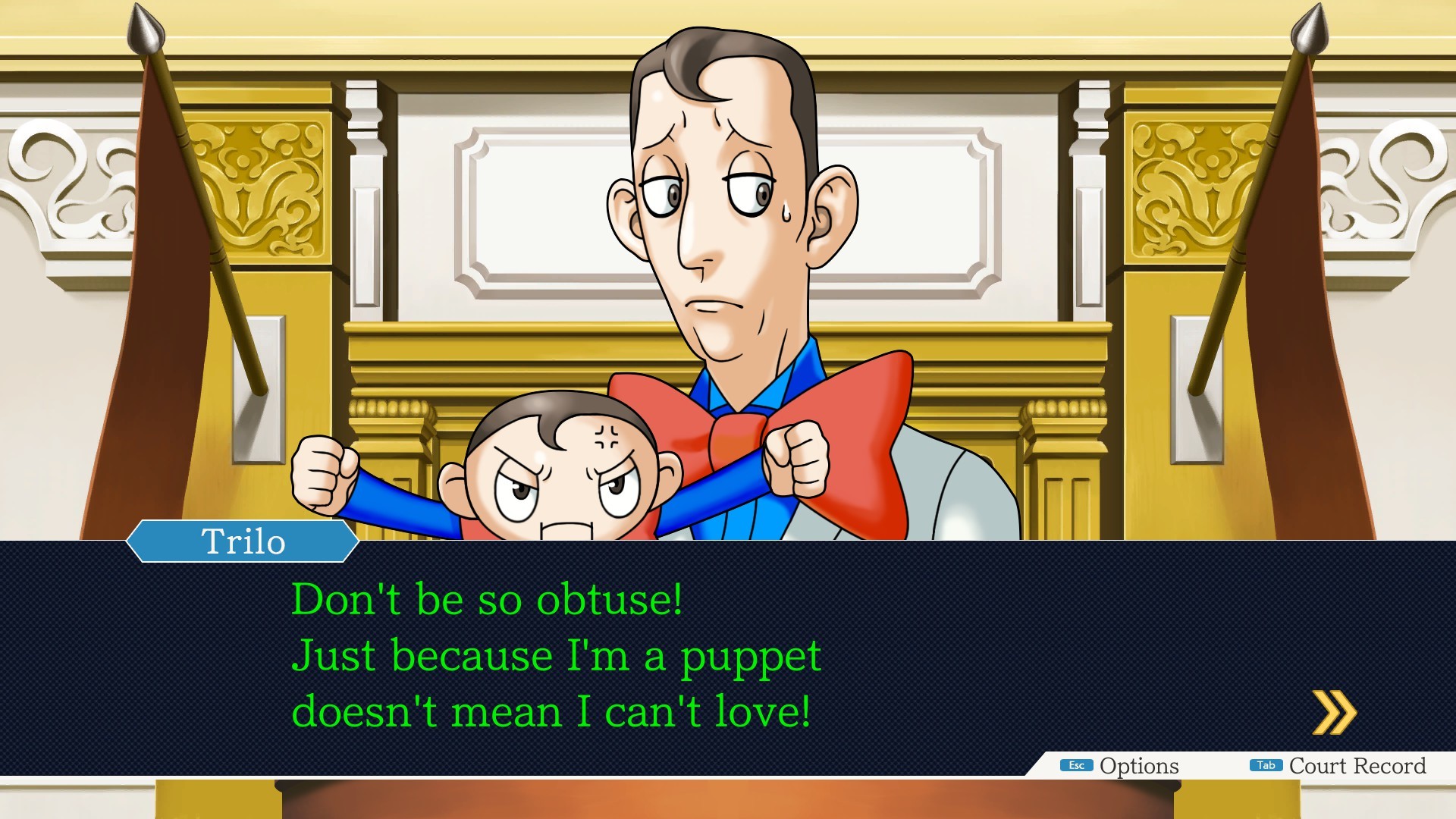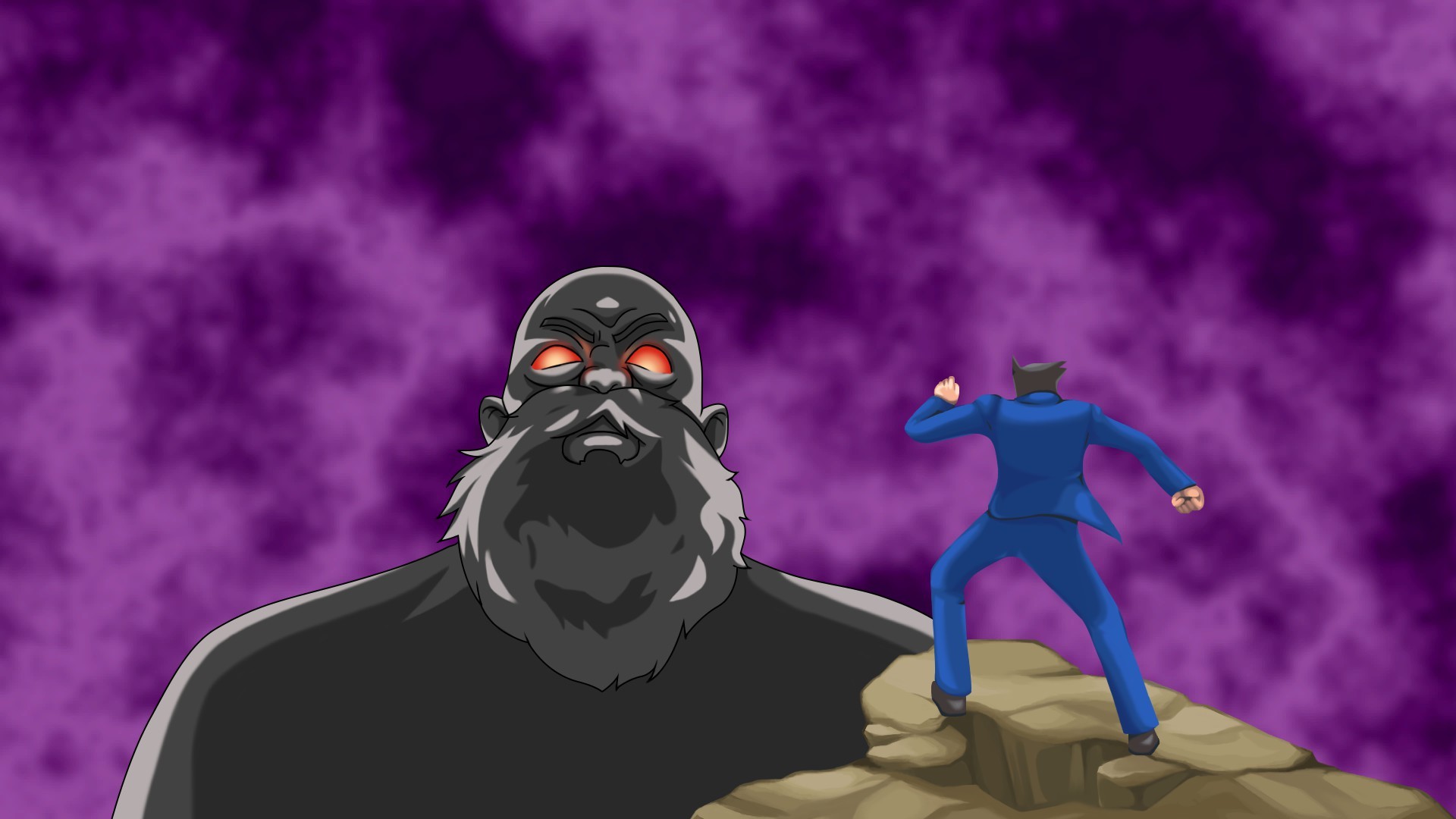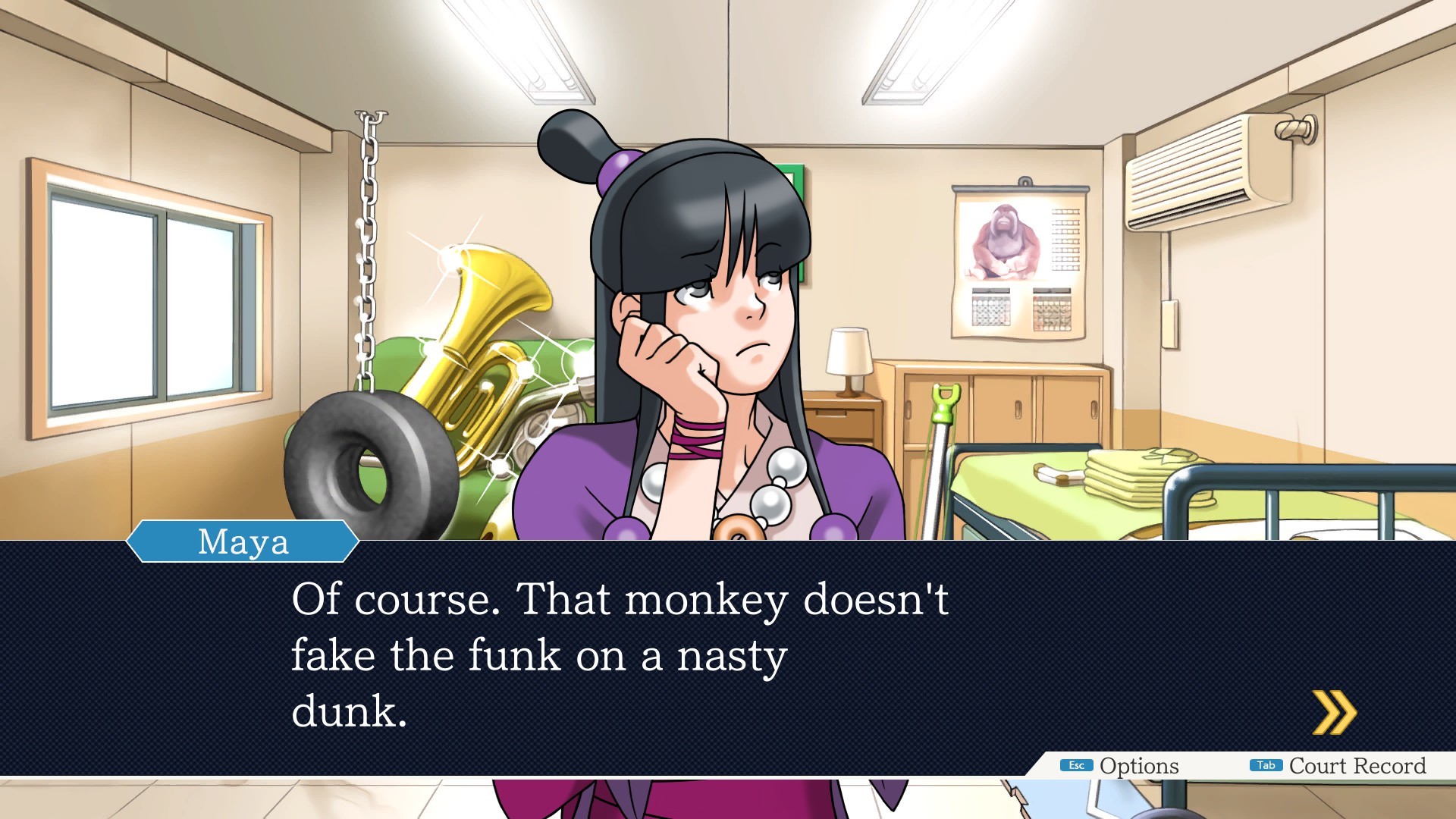Bloodstained: Ritual of the Night starts out rough. Primarily, I would say, because you start the game with no combat or mobility techniques and it's quite a while before interesting abilities show up.
Let me set the stage a bit. Bloodstained is a spiritual sucessor to Koji Igarashi's Castlevania games, from Symphony of the Night through Order of Ecclesia. Mechanically, Bloodstained is most like the Aria/Dawn of Sorrow installments -- except, instead of collecting enemy "souls" to learn their powers, you collect enemy "shards" to learn their powers. (Yeah they are the same thing.)
There's no Dracula in this game, but there is an ostentatious villain who dresses a lot like a vampire. And he's summoned a sprawling, magical, maze-like castle from hell that serves as a headquarters for his army of demon invaders. ... It's not subtle.
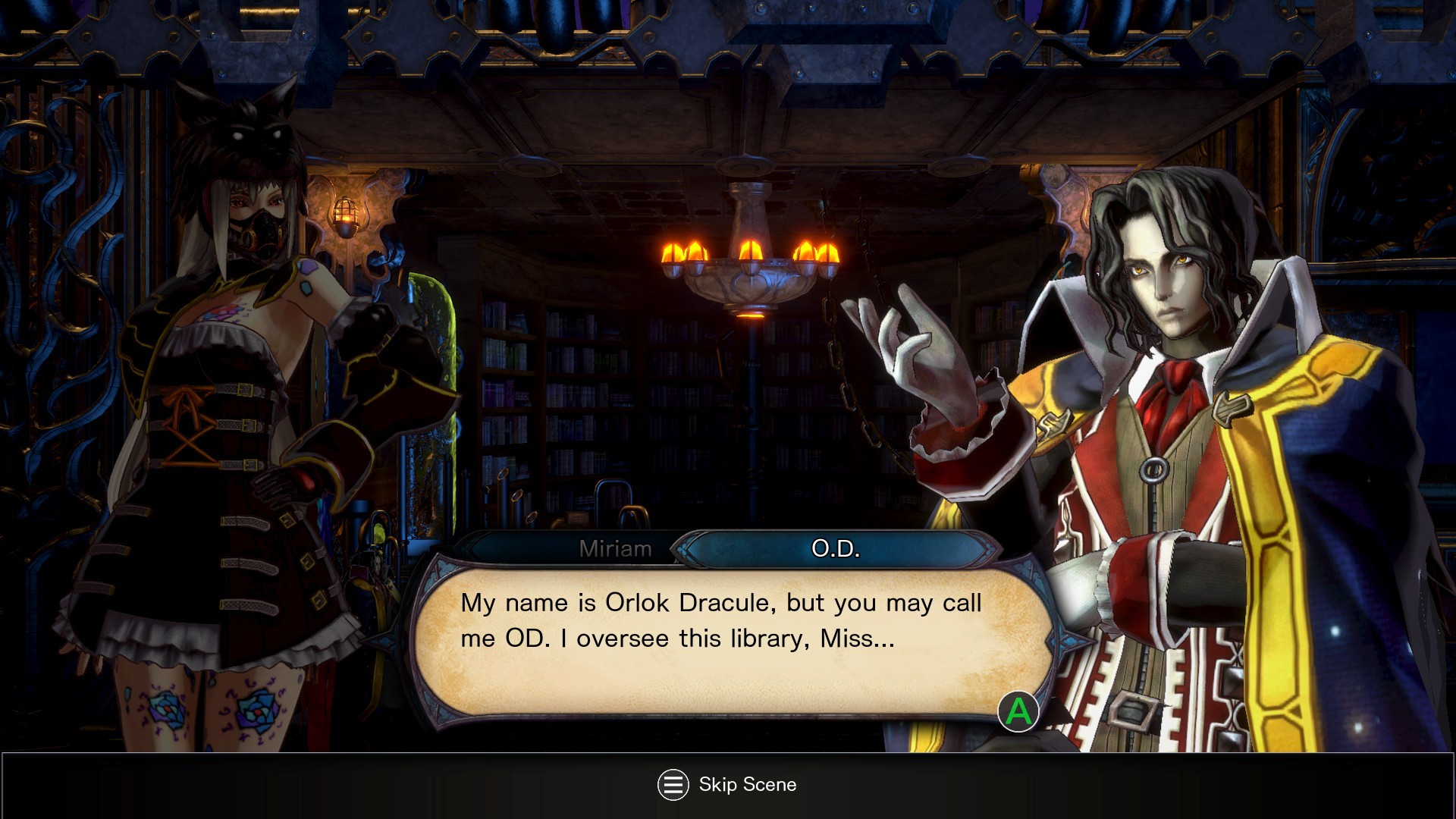
(That isn't the villain. That's some other vampire.)
Even the composer is a Castlevania alum. And that's very aurally evident in the theme and quality of Bloodstained's soundtrack; all that's missing is a track called "VAMPIRE KILLER."
Bloodstained is so much like those Castlevania games that it hardly merits further explanation. It replicates the same empowerment arc through experience points, weapon drops and crafting, soul- er, shard powers, Metroid-style upgrades that unlock new areas ... and the sense of achievement that comes from defeating bigger and badder enemies with your newfound strength.
It's a shame, then, that Bloodstained doesn't give you enough power to start with. In the early game, you can't jump very high; walking is slow; and none of the available shard powers elevate combat beyond a simple "slash enemy then move away" routine. It was about two hours until I'd made enough progress to change any of that. Until new abilities arrived, unlocking new areas and spicing up the combat, there just weren't enough options to keep the gameplay interesting, and journeys from one safe-room to another felt like a chore.
Also, the game's opening moments insist on verbosely explaining and re-explaining the plot to you through dull character interactions. The premise - alchemists opened a portal to hell - isn't bad on its own, but the written dialog is ... well, it's reminiscent of Symphony of the Night's infamously bad localization. And with the happy exception of protagonist Miriam, Bloodstained's voice cast sounds almost as awkward and unenthused as PS1-era voice acting did.
So like I was saying: it starts out rough.
But Bloodstained does, after a few hours, get over these humps of lackluster gameplay options and clumsy storytelling; and then the "magic" comes back in full force. Like the best Igavanias, when all its cylinders are firing, Bloodstained delivers rich and varied opportunities to make progress -- exploring the map, collecting items, leveling up, and occasionally discovering fun secrets.
It almost always feels like you're accomplishing something, even if only in small increments, toward the ultimate goal of overpowering evil. Bloodstained is at its best when it's giving you plenty of opportunities for continuous improvement. (And when it sets the story aside for some Castlevania references or other light-hearted fun.)
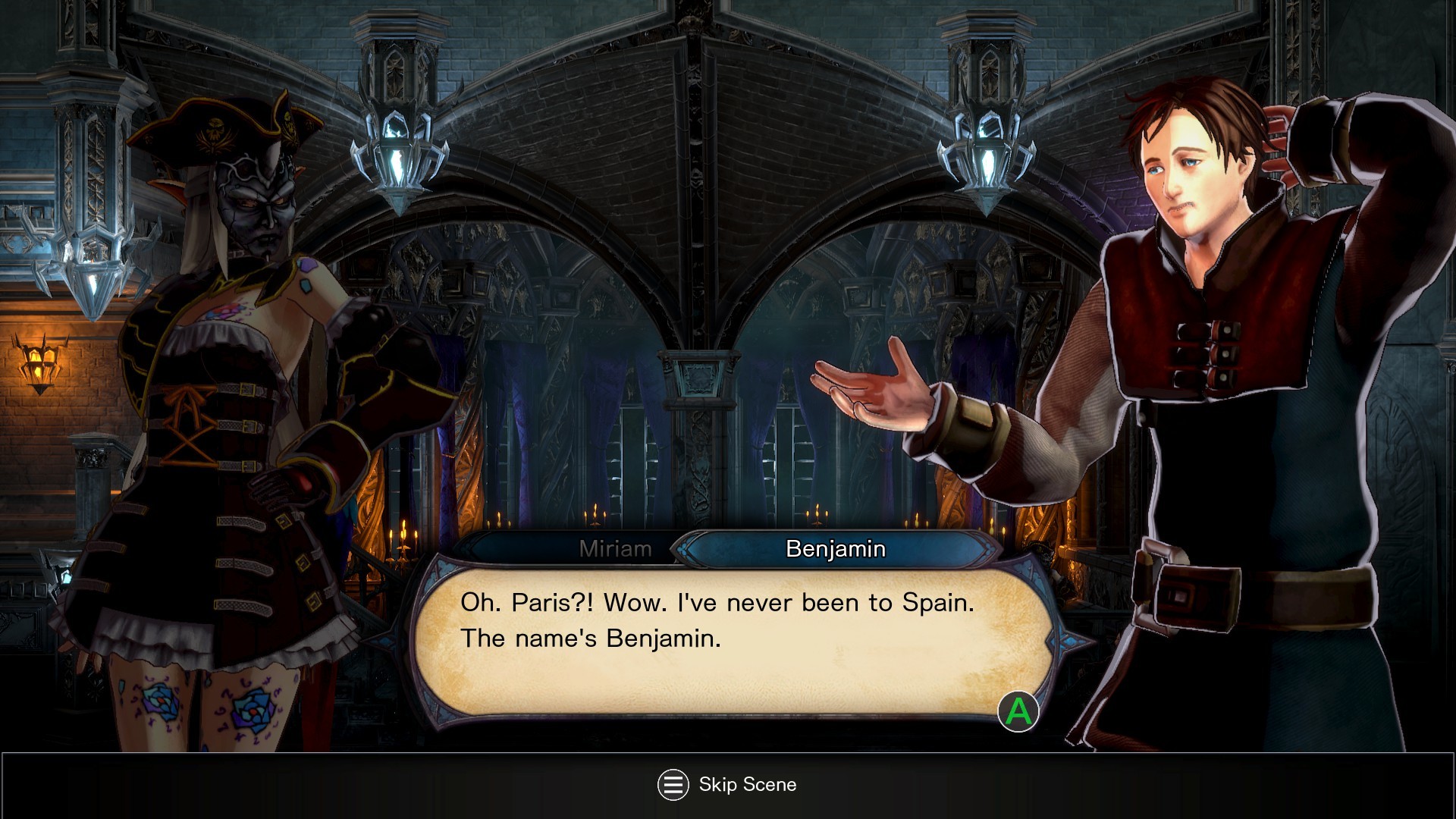
... and then there are a few points where Bloodstained stumbles along its critical path. Like, I totally admire when bonus content is unlocked by using a random-seeming ability in a special area. But it feels obnoxious when such a secret is smack in the middle of the main storyline. Needing a random-drop shard ability to dive underwater, or needing a hidden piece of equipment to get past an environmental hazard, before the next story beat shows itself; these moments feel pretty archaic.
And that's why, despite how enthralling the game can be, it's hard to think of Bloodstained as more than a reboot of 15-year-old Castlevanias. Clearly the formula is still relevant; but the familiar setting and obscure obstacles also make it feel stuck in the past.
I had a blast in Bloodstained's castle, in fact I'm continuing to enjoy being an obsessive completionist about it. And, hell, I'd definitely play another game just like it with little hesitation.
But Igarashi could learn a thing or two by looking at games other than his own for inspiration. More recent Metroidvanias like Dust: An Elysian Tail, Guacamelee, Ori and the Blind Forest, Timespinner, even Toki Tori 2+ have iterated on IGA's legacy; the master could learn some new tricks from these students.
Better than: Timespinner in terms of breadth and depth of content.
Not as good as: Timespinner in terms of modern trappings (not leaving me totally lost mid-story).
Some more bugfixing would also have been nice: fortunately I wasn't caught by this progression blocker, but I did have to reload on this pause menu soft-lock multiple times.
